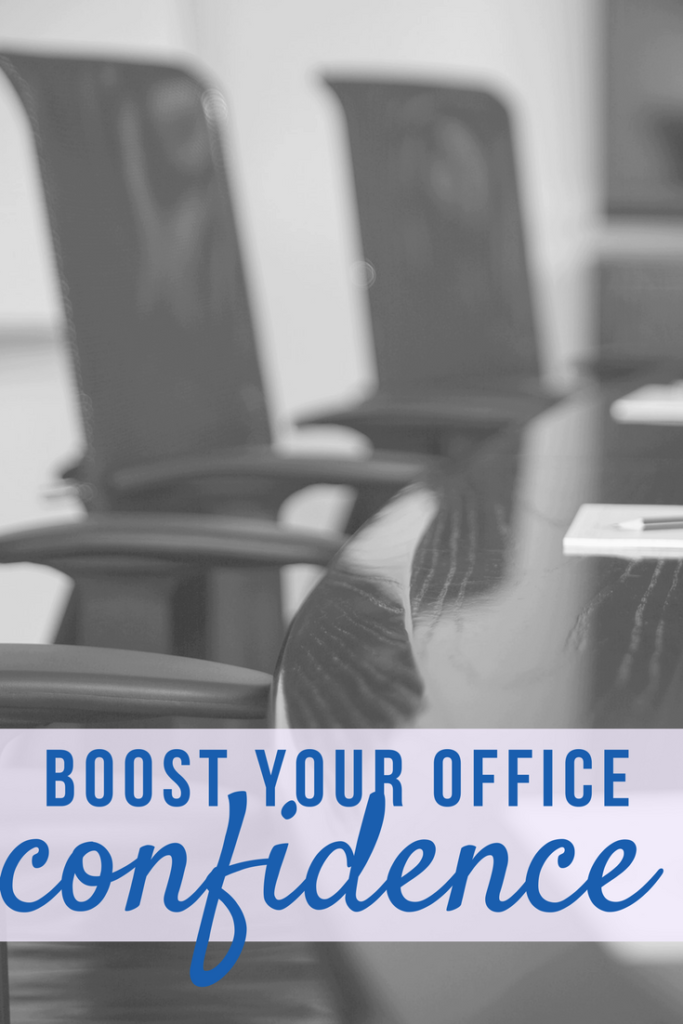
Let’s face it—running a meeting can be an intimidating experience. But just because it can be, doesn’t mean it has to be. Simple tricks like getting to the meeting five minutes early gives you time to refresh your memory on the agenda and set up any presentations, ultimately boosting your comfort and confidence in the discussion. While you may never shake all of your stage fright or public speaking jitters, using these six confidence boosters to own the room and rock the meeting will help you in the long run.
6 Confidence Boosters for Your Next Meeting
1. Don’t skimp on the prep work

Maybe you’re a spontaneous presenter, so a rehearsed word-for-word speech will make you more nervous—that’s totally fine. But even if you want to wing it, you still need to conduct any necessary research and prepare for the meeting so you know what to say when the time comes. If you’re familiar with the topic, questions won’t catch you off guard and you’ll be able to actively engage in dialog with your coworkers, keeping you calm and in control.
2. Dress the part

You’ve likely heard the saying, “Dress for the job you want, not the job you have.” That’s certainly true, and so we’re tweaking it a little bit: “Dress for how well you want the meeting to go.” Your attire is going to put you in the right mentality, so wear something that’s professional and polished. Make sure it’s clothing you’re comfortable in—because uncomfortable clothing is going to affect your confidence—but kick it up a notch from your normal day-to-day to mentally prepare yourself.
3. Speak loudly and clearly

Without shouting, speak loud enough for everyone to hear you (bonus tip: if you need to shout for everyone to hear you, you need a microphone). And speak slowly and clearly enough for everyone to understand you. This will reduce the number of times someone asks you to repeat or clarify yourself—which is good, because those questions can derail your train of thought, or make you second-guess how clear you’re being.
4. Make an agenda…

…and stick to it! Agendas ensure you don’t miss anything you need to say, and they let the attendees know what is going to be discussed, so they can plan their questions and ideas accordingly. A clear agenda reduces the number of questions attendees will have (see point #3 above) and keep everyone on track. You can write the agenda during your prep work, and ideally send it to attendees before the meeting, so they have time to look it over.
5. State the objective right away

Using the handy agenda you made and are sticking to, take control of the meeting right away by stating the objective(s) of the meeting at the very beginning. This focuses everyone on the topic(s) at hand, and if you initiate the conversation, you become the leader of the group. As the leader, you can make sure the agenda is followed, and that no one monopolizes the meeting, which can be frustrating and ultimately affect your confidence.
6. Make eye contact

Whether you’re talking, or someone else is, always make eye contact. If you’re talking, look around the room so that you’re engaging with attendees and keeping their attention. If someone else is talking, maintain their eye contact so they know they’re being heard. This will also encourage you to listen to them, instead of preparing your response. (If we had a #7, it’d be to give yourself time to respond or answer a question—listen to the speaker(s) and take a moment when they’re done talking to process and respond clearly and coherently.)

Like we said at the beginning, there’s no way to guarantee confidence during a meeting, but there are methods you can use to boost your confidence. Don’t let these tips stay inside the office—try making better eye contact during dates or setting goals (or agendas) for your weekend or month. The more you cultivate confidence, the more naturally it will come.

